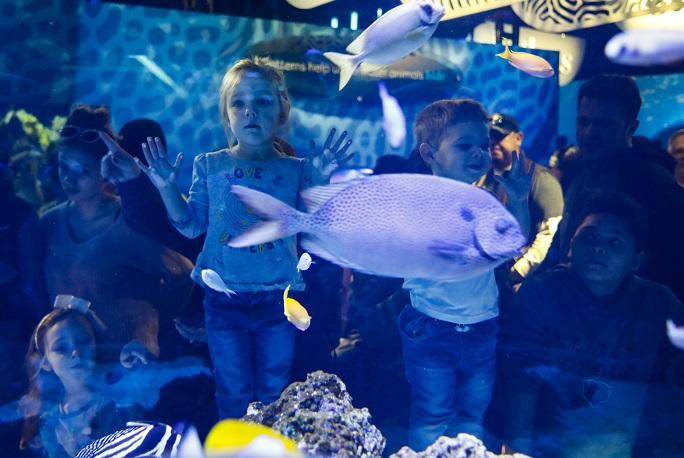Lack of visitors amid COVID-19 pandemic
Fish at Australian aquarium show signs of loneliness
Published : 14 May 2020, 20:06
Staff at an aquarium in the Australian State of Queensland have noticed some of their fish showing signs of loneliness since the attraction was forced to close due to the COVID-19 pandemic.
Normally the aquarium, in Queensland's city of Cairns, welcomes large amounts of visitors on a daily basis which many of the fish have gotten used to, according to a report by the Australian Associated Press(AAP) on Thursday.
Fish species like sharks, groupers, stingrays and the Humphead Maori wrasse were particularly fond of interacting with the guests.
Since the aquarium closed, staff noticed certain fish looking out for people and some even stopped eating, like a giant Queensland Grouper named Chang.
"He sulked a little bit for one to two weeks, and during that period of time he stopped eating," Aquarium Curator and Marine Biologist Paul Barnes told the AAP.
"He's a very inquisitive fish with quite a strong personality, and he does love to stare at people. It's even the same for the divers in the tanks - he wants to come right up and have a good look and follow people around sometimes."
Aquarium staff weren't overly concerned about Chang's sulking behaviors since he remained in good shape health-wise, however extra effort has been made to make the fish feel less lonely, including more hugs underwater and eating lunch besides them.
"We've got these leopard sharks, and they almost like being held or cuddled like puppy dogs," Cairns Aquarium Chief Executive Daniel Leipnik said.
"We normally have two divers, we now have three. So there's a bit more human contact going on, just to create that extra stimulation."
Staff told AAP eating their lunch beside the tank will help the fish get used to people again before the reopen of the aquarium.
"We'll go sit there and have a chat with them from the outside," Barnes said.
They hoped that soon visitors could join the action too and help them better understand the intelligence and sensitive nature of those fish.
"They really have got brain power, they seem to have emotions, and they connect with people," Leipnik added.


